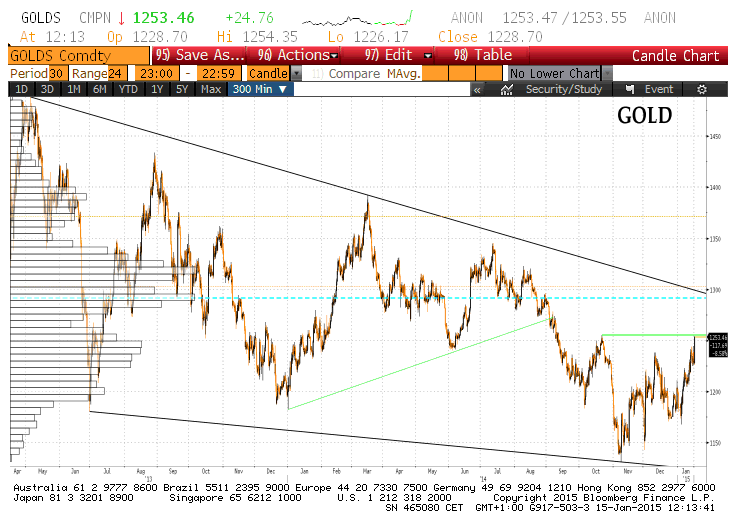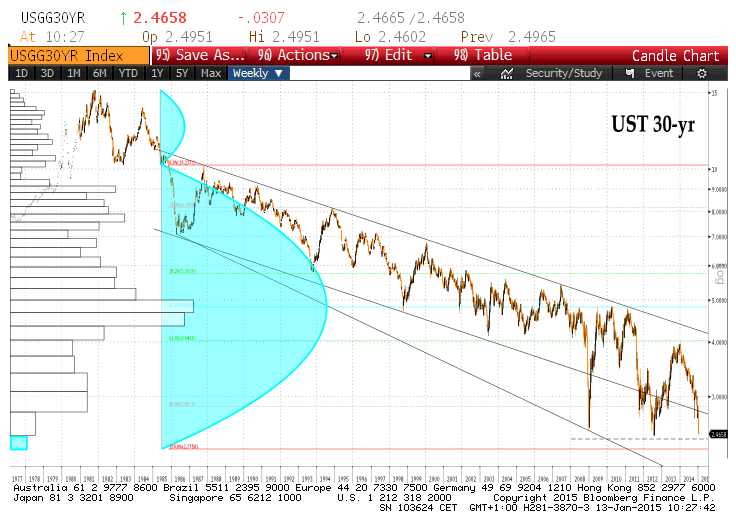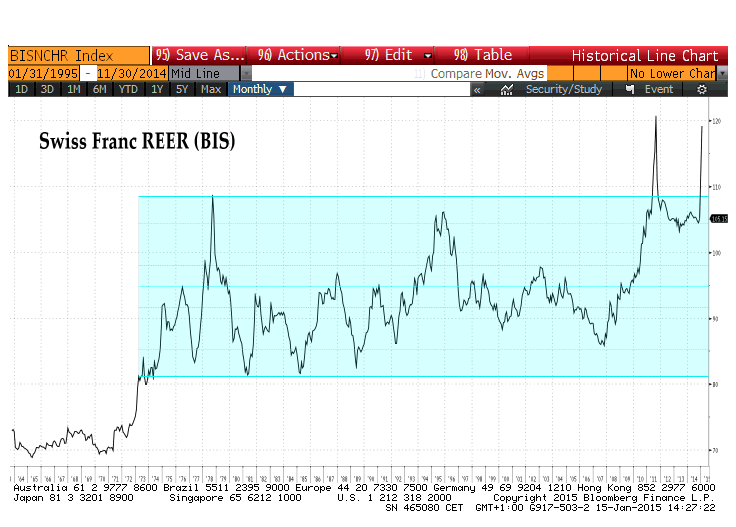On Wednesday, we were all utterly not shocked to learn that the Advocate-General of the European Court of Justice, Pedro Cruz Villalón, had decided that he could see no major objections to Mario Draghi’s Fed-wannabe programme of so-called Outright Monetary Transactions – a decision upon the legality of which was earlier referred to that august body by the German Constitutional Court like the hot potato it was.
Though Snr. Cruz Villalón’s decision is not binding – a decision of the full body sometime in the middle of the year is needed for that to occur – it was nevertheless highly suggestive of the way the court might rule and was therefore seized upon by stimulus junkies everywhere as a result.
Nor was it surprising that large sections of the German press recorded their outrage at the judgement. The Süddeutsche Zeitung declared bluntly that the long fought-for principle that no-one should be above the law was being violated by the ECB. It did concede that the Advocate-General might just have hedged his endorsement sufficiently well to avoid an immediate confrontation between their honours in Luxembourg and Karlsruhe, but it then went on to admonish darkly that the ‘battle for the euro is not over.’ Die Zeit also spoke of ‘a war of the judges’, taking particular umbrage at the way that the Spaniard tried to browbeat the members of what he saw as a much inferior jurisprudence in the Heimat.
FAZ was far from equivocal in its condemnation, wagging its finger at the ‘carte blanche’ offered to the ultrafederalists and it thundered that the Bank was being afforded a back-door route to the advance of the superstate ‘without any democratic legitimation’. Handelsblatt, for its part, ran an article around the fulminations of CDU economic spokesman Klaus-Peter Willsch who said the ECJ was setting itself up for a conflict of law with the German court and declared that the AG’s utterly laughable contention that since no-one outside the central bank had the competence to assess the technicalities of its policies, they should not therefore presume to try. That, said Herr Willsch, was to resort to the deadly concept that ‘necessity needs no law’ and that it was serving to ‘create a schism in Europe’ by ‘weaving fiscal and monetary policy into a Gordian knot’.
But if market suspicions are subsequently confirmed, the real impact of the opinion resonated most forcefully in Zurich where the SNB astounded pretty much the entire financial universe by abrogating the controversial, but to this point staunchly maintained, policy of defending a floor of Sfr.1.20 to the euro.
In the course of that policy, the SNB has amassed for itself half a billion in forex reserves, multiplying them almost elevenfold from their steady, pre-crisis level of around CHF45 billion to a sum now equivalent to 10 months’ GDP, 15 months’ of household consumption, 70% of household mortgage debt, 65% of Swiss net external assets, 80-odd percent of the (2012) net worth of all the country’s nonfinancial corporations and 45% of SMI market cap.
Think about this for a moment: with no little justification, Hans Werner Sinn and others bemoan the fact that Germany is on the hook for EUR460 billion of its less competitive neighbours’ borrowings though the medium of the Bundesbank’s T2 balances. Yet, in a country with an economy less than one-fifth of Germany’s size and a population barely a tenth, the Swiss have themselves an exposure of EUR200 or so or so – admittedly, in their case, mostly parked in the better class of euro securities, not the worse as the T2 lenders perforce must do.
Hence, when some Greek importer cannot raise or roll the credit required to pay for his goods, or when an Italian saver worries about the state of his local banks or frets over the chances of Beppe Grillo engineering a return to a much-devalued lira, he can not only call on the Bundesbank for assistance, but the SNB, too, and the latter must therefore accept a much more overt currency, if a somewhat lesser credit, risk as this week’s equity-obliterating mark-to-market loss of CHF70 billion or more has made all too plain.
Given, too, that the Greek political turmoil has already caused two large banks there to draw down upon €5 billion in Emergency Lending Assistance from the ESCB as deposits have drained away at talk of yet another haircut – or even of a complete exit from the single currency – and taking note, too, of the fact that the Italians’ call upon the T2 system has soared from July’s €130 billion post-Whatever it Takes low to December’s hefty €209 billion, the pressure on the SNB was only ever headed higher even before we wonder what might be the scale of flight capital emanating from Russia and the Ukraine.
Indeed, December saw the Bank buy an additional average of CHF1 billion a day (despite the impediment of that month’s various market holidays and the traditional year-end reluctance to add to positions): who knows how much that has swollen in the past two weeks? Can you also imagine the chaos to be unleashed in the bond market if and when Draghi finally launches his legions of interventionism in a bloody assault upon the good burgers of Europe’s saving classes and the members of the SNB are forced into acting as his equally aggressive auxiliaries?
Faced with all this, SNB Chief Thomas Jordan was suitably impassive in explaining the Bank’s position as ‘inevitable’ and in insisting that it could not have been announced in any other way. He pointed out that Swiss competitiveness had received a considerable boost from the fall in raw materials prices and argued correctly that there was no ‘perfect world’ in which to conduct a monetary policy which avails itself of limited tools, but which entails consequences which are both generally profound and highly disparate among the various interest groups at home and abroad.
One wonders whether the doleful ghosts of currency peggings past – most notably during the break-up of Bretton Woods and the subsequent oil shocks – had come to weigh more heavily in the counsels of the Bank. Perhaps Professor Ernst Baltensperger – former academic supervisor of Herr Jordan – tipped the balance (if not the wink) when he told the NZZ am Sonntag that ‘foreseeable international developments’ made it both prudent and opportune for policy to shift toward the adoption of a currency basket approach. Certainly, the most telling phrase in the official revelation of the shift noted that: ‘…recently, divergences between the monetary policies of the major currency areas have increased significantly – a trend that is likely to become even more pronounced…’
The market took this not so much to mean that the Fed was likely soon to start removing some of its extraordinary stimulus, but that the ECB was about to go nuclear. Stocks and bonds rallied immediately while commodities saw a wild day, gold continuing its recent rise with a push up to a 4-month high of $1266/oz (it looks headed for the confluence of HVP and trend-line at $1285/90) and WTI swinging wildly in a 10% intraday range before settling modestly in the plus column.
The ramifications of the shock have been felt far and wide. Madame Christine Lafarge (sic) even rushed around to CNBC to denounce this act of lèse majesté by griping that the ever intractable Swiss had not deigned to inform her aforetimes of what it was they were about to do. Perhaps you might recall the wartime slogan that ‘loose lips sink ships’, Your Imperial Highness.
Nick Hayek of Swatch – never one to be shy about lobbying for favour for his concern, or of blaming bankers for his and his company’s woes – condemned the SNB for unleashing a ‘tsunami’ with its decision. Conversely, Christoph Blocher – also a man with some interest in the export industry, it should be recalled – expressed his surprise but then echoed the line adopted by several defenders of the move who have pointed out that industry has had a long time to ready itself for the end of what was only supposed to be a temporary measure. The SVP head noted laconically that ‘those who are cursing this are the ones who have not done enough to prepare for it.’ He also slyly remarked that the fact that the move was completely unheralded was a ‘good sign’, noting that, by contrast, the introduction of the peg had been disclosed to ‘some people’ in advance. You don’t suppose he was referring to Mrs. Hildebrand, do you?
That grand old man of the Swiss Finanzplatz, Oswald Grübel summed it up best of all with a telling quote carried online at cash.ch. ‘A few years ago, we were upset at having to socialize the banks’ losses,’ he observed. ‘Today, we pay through the fixed exchange rate to flatter corporate profits and no-one seems to have a word to say against it.’
Beyond Switzerland, the pain was also being felt in Eastern Europe as well as among larger creditors thereof such as the beleaguered Raiffeisen Bank in Vienna whose market cap dropped smartly back to the low-tide mark of €3 billion last seen as the Lehman crisis raged. As a group, Austrian banks have some €230 billion lent out to the Hapsburgs’ former territories, some two-fifths of which is said to be denominated in foreign currency.
Estimates are that, closer to home, some 220,000 Austrians have borrowed in Swissy, with households on the hook for €25 billion, businesses for perhaps another €5 billion, and local governments for a further €2.7 billion. The €1.6 billion of that last total owed by the City of Vienna alone has already ignited a firestorm of political cat-calling and affected outrage, with calls being made for the immediate resignation of the incumbent finance director – a taste of what is everywhere to come, one supposes. So much pain and all for a paltry, pre-Crisis saving of 150bps on average on medium term borrowing.
Meanwhile, the Warsaw Voice quoted Polish Financial Supervision Authority data showing that, at end-November, some 37% of the nation’s total mortgage stock was still constituted in Swiss francs – PLN131 billion out of a PLN 3512 billion total – and that has affected as many as 2 1/2 million people. Here we are truly talking hurt, with this week’s 20+% increase in their liabilities effectively serving to double the principal value of any loan taken out on the eve of the 2008 collapse.
Hungary, notoriously, has an exposure for which the Orbán government has already forced the banks to cough up before recalibrating loans to a parity of HUF256.5 to the franc. Following Thursday’s bombshell, they will potentially have to swallow another 20% loss on top of those they have already suffered. Additional to this, as Portfolio.hu pointed out, there is also some HUF377 billion in non-secured personal credit not subject to the state’s limitations with which to reckon; not perhaps an amount to pose any systemic threat but certainly sufficient to cause a deal of anguish to the 200-odd thousand individuals who will directly feel the squeeze.
As ever, the effect of such upheaval has made itself felt in those few remaining pockets of supposed safe haven: the US T-bond has traded down to the almost unimaginable yield of 2.35%, breaking both the GFC panic and the Operation Twist lows of 2.5% and 2.45% respectively. At the risk of engaging in another fixed income widow-maker trade, our reading is that an eventual failure of this move should be looked for in the region of 2.25% and that, if it does so transpire, one should be looking to buy receivers back above the old lows and potentially scaling in thereafter as this might – finally – mark the culmination of the long, long bull market for bonds which our generation has been lucky to enjoy.
Ten-year Bunds, for their part, now trade at a princely 40bps while those wishing to lend money to the Swiss Confederation will have to pay it for the privilege of accepting their cash should they commit the money for anything shorter than a decade. Should you require a little risk with your rente, a cruise out along the sovereign credit curve gets you all of 1% if you wager on the ability of either Spain or Italy to make good on their promises over the next 6-7 years!
As for the implications in the Alpine bastion of freedom itself, the real effective exchange rate of the Swissy has jumped back to the very same spike highs which prompted the introduction of the floor back in the autumn of 2011. Exporters can therefore be expected to struggle, as will any supermarkets located within easy distance of the landlocked nation’s long borders with its already much cheaper neighbours. For their part, the cantonal governments will have to exercise a good deal of prudence in disposing of this year’s potentially record disbursement of seigniorage from the Bank since there is not likely to be any such windfall in prospect for next year.
Notwithstanding such medium term fiscal pressures, there will undoubtedly be further, urgent discussion about how to reduce the tax burden on businesses – whether cost-sensitive foreign multinationals or members of a local entrepreneurial base whose favour will be more actively canvassed in any case in this, a Federal election year.
As for negative interest rates, these may have to be accompanied by yet more regulatory measures to try to retard the ongoing rise in property prices, though a possible diminution of interest from foreigners now getting less bang for the buck and oomph from the euro might help there also. Whether it really serves as check on inflows, as the Bank pretends to assume, is a question of a much more vexed nature given that the Swiss find themselves surround by an ocean of zeroes and minuses already.
But, above all, we must conclude by asking ourselves the question whether Thomas Jordan been much shrewder than his many critics have dared to suppose. Knowing that the franc is now heavily overvalued and possibly fearful of the outlook for the (translated) earnings of locally-domiciled companies, could it be that the market itself begins slowly to unwind that CHF500 billion hoard as savers, investors, and takeover specialists look to exploit this unlooked-for jump in purchasing power by snapping up bargains elsewhere in the world?
If such a mood takes hold, that sterile pile of low-yielding euro govvie paper which resides in the vaults of the SNB could gradually come to be translated into claims on genuinely wealth creating endeavours from around the globe. Capital outflows would thus slowly erode the commercial banks’ presently otiose mountain of sight deposits, allowing the SNB to gradually reverse itself out of the corner into which it has painted itself in turn and all without causing any further disturbance to the market or without perpetuating the medium-term inflationary risks which it has been running while the floor has been in place.
Since the announcement, the yellow press has been emblazoned with headlines bleating that ‘THE SNB HAS LOST THE CONFIDENCE OF THE MARKET!’ to which the sour riposte from north of the Rhine rang back that ‘the SNB has lost confidence in the euro’.
But perhaps the real truth – and a much more significant one, to boot – is that, under Thomas Jordan’s calm, quiet, old school style of leadership, it is the SNB which, alone among its peers, has actually regained confidence in the market.
Now wouldn’t that be a turn up for the books?
NB The foregoing is for educative and entertainment purposes only. Nothing herein should be construed as constituting investment advice. All rights reserved. ©True Sinews



